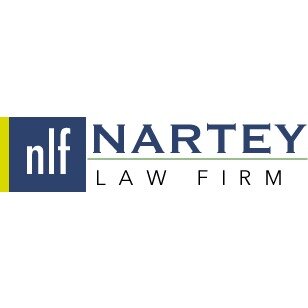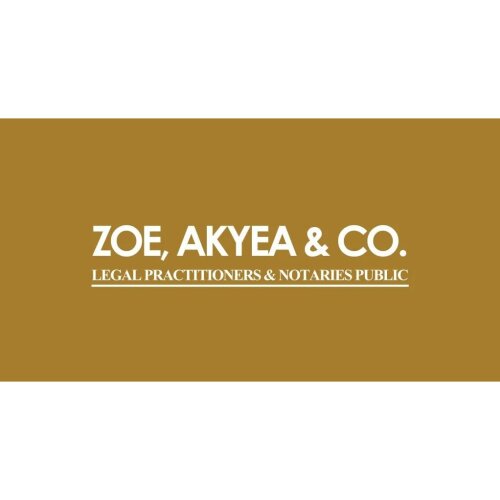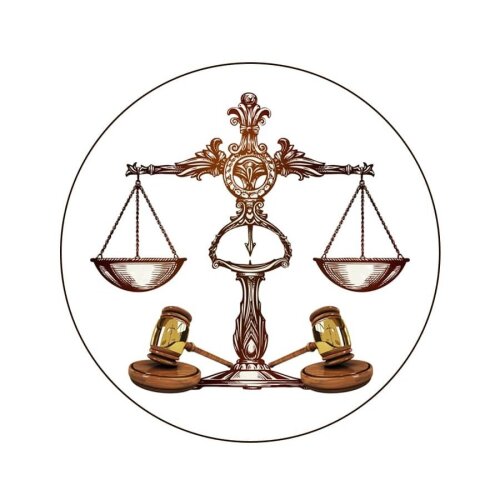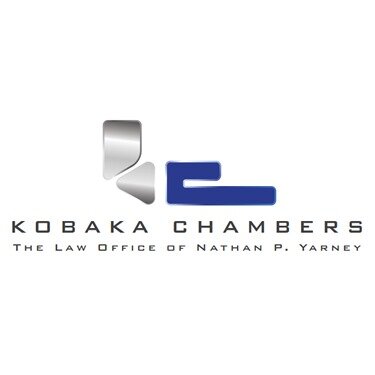Best Elder Abuse Law Lawyers in Ghana
Share your needs with us, get contacted by law firms.
Free. Takes 2 min.
Or refine your search by selecting a city:
List of the best lawyers in Ghana
About Elder Abuse Law in Ghana
Elder abuse law in Ghana pertains to the legal frameworks designed to protect older adults from abuse and exploitation. This includes physical, emotional, financial, and psychological abuse. The main goal is to ensure that elderly individuals live in dignity, free from harm and with access to the necessary resources for their wellbeing. The Ghanaian government and various institutions are working together to address elder abuse, raise public awareness, and enforce protective measures.
Why You May Need a Lawyer
There are several situations where seeking legal advice on elder abuse law may be necessary. These include:
- Detecting signs of physical or emotional abuse among elderly family members.
- Handling cases of financial exploitation where assets or savings of an older individual are at risk.
- Pursuing legal recourse against caregivers or institutions that neglect the care of the elderly.
- Dealing with threats or harassment directed towards elderly individuals.
- Navigating the complexities of establishing guardianship or power of attorney.
- Seeking to improve living conditions or care facilities for senior citizens.
Local Laws Overview
The key aspects of local laws relating to elder abuse in Ghana focus on several critical elements:
- Constitutional Protections: The constitution of Ghana provides fundamental human rights assurances which also extend to the elderly population.
- The Domestic Violence Act: This act offers protection against all forms of domestic violence, including elder abuse within family settings.
- Criminal Code: Provisions exist within the criminal code to prosecute those who physically torture or harm the elderly.
- Social Welfare Policies: The government has established policies to enhance the welfare and protection of older adults.
- Non-discrimination Principles: Emphasize equal treatment for all citizens, addressing ageism and elder discrimination.
Frequently Asked Questions
1. What constitutes elder abuse under Ghanaian law?
Elder abuse can be physical harm, emotional distress, financial exploitation, or neglect of an elder's basic needs.
2. Who can be held accountable for elder abuse?
Anyone in a caregiving role or related to the elder, including family members and professional caregivers, can be accountable.
3. What should I do if I suspect elder abuse?
Report your suspicions to local authorities or social welfare agencies and consider consulting a lawyer for guidance.
4. How are cases of elder abuse reported?
Cases can be reported to the police, the Domestic Violence and Victim Support Unit (DOVVSU), or through social welfare services.
5. Can legal action be taken if the elder refuses help?
Legal action can be complex in such circumstances, and a lawyer is best suited to assess and advise on the steps to protect the elder’s welfare.
6. Are there legal services available for elders who can't afford a lawyer?
Yes, there are non-profit organizations and legal aid services that offer support to elder individuals in need of legal assistance.
7. Can elder abuse affect inheritance laws?
Yes, if financial exploitation is involved, it can impact inheritance, and steps may be taken to recover assets or amend wills and trusts.
8. What legal protections are there for elders in care facilities?
Laws protect residents against neglect or abuse in care facilities, and institutions can face sanctions if found negligent.
9. Are there supports for caregivers to prevent elder abuse?
There are programs and services aimed at supporting caregivers to reduce stress and provide resources for better care.
10. How does Ghanaian law prosecute elder abuse offenders?
Prosecution involves criminal proceedings based on the nature of the abuse, with penalties varying according to the severity of the offense.
Additional Resources
For those seeking more information or assistance, consider reaching out to the following resources:
- Department of Social Welfare: Offers support and resources for elder care and protection.
- The Legal Aid Scheme: Provides free legal assistance to those who cannot afford representation.
- DOVVSU: The Domestic Violence and Victim Support Unit helps in addressing and supporting abuse cases.
- HelpAge Ghana: An organization advocating for the rights and well-being of older people in Ghana.
- The Commission on Human Rights and Administrative Justice (CHRAJ): Addresses complaints about human rights abuses.
Next Steps
If you require legal assistance in elder abuse law, consider the following steps:
- Document Evidence: Keep detailed records of any abuse instances, including dates, descriptions, and any witnesses.
- Seek Immediate Help: Contact local authorities or emergency services if the elder is in immediate danger.
- Consult a Lawyer: Engage with a legal professional specializing in elder law to explore your options and safeguard the elder's rights.
- Reach Out to Support Groups: Get in touch with local support networks or organizations for advice and assistance.
- Consider Mediation: In non-urgent scenarios, mediation may be a viable option to address and resolve interpersonal issues amicably.
Taking prompt and informed action can help ensure the protection and well-being of elders facing abuse or exploitation.
Lawzana helps you find the best lawyers and law firms in Ghana through a curated and pre-screened list of qualified legal professionals. Our platform offers rankings and detailed profiles of attorneys and law firms, allowing you to compare based on practice areas, including Elder Abuse Law, experience, and client feedback.
Each profile includes a description of the firm's areas of practice, client reviews, team members and partners, year of establishment, spoken languages, office locations, contact information, social media presence, and any published articles or resources. Most firms on our platform speak English and are experienced in both local and international legal matters.
Get a quote from top-rated law firms in Ghana — quickly, securely, and without unnecessary hassle.
Disclaimer:
The information provided on this page is for general informational purposes only and does not constitute legal advice. While we strive to ensure the accuracy and relevance of the content, legal information may change over time, and interpretations of the law can vary. You should always consult with a qualified legal professional for advice specific to your situation.
We disclaim all liability for actions taken or not taken based on the content of this page. If you believe any information is incorrect or outdated, please contact us, and we will review and update it where appropriate.
Browse elder abuse law law firms by city in Ghana
Refine your search by selecting a city.














